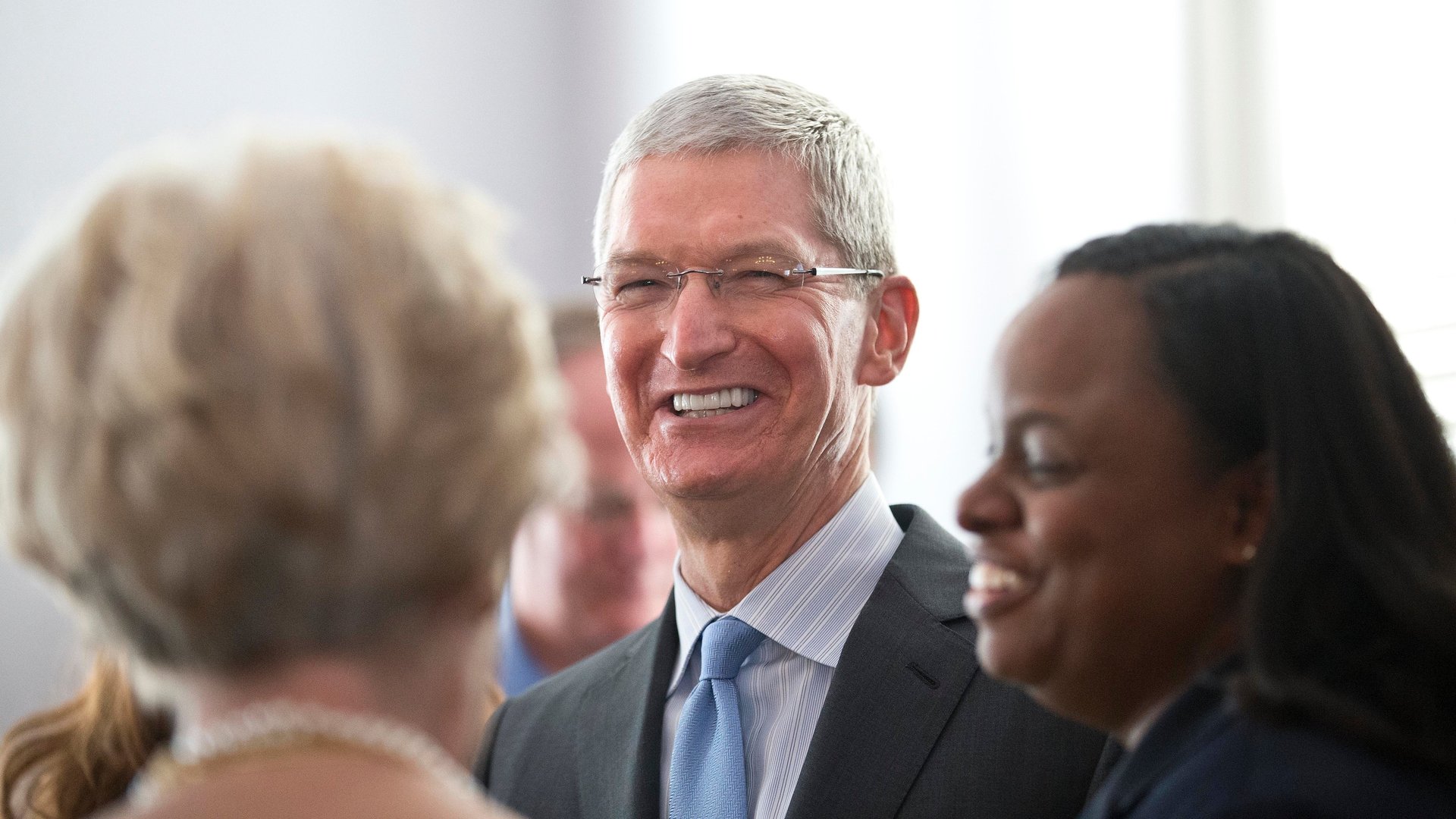Tim Cook’s coming out portends a liberation of the Creative Ghetto
Trading one’s privacy for the benefit of others isn’t an easy decision. Apple CEO Tim Cook just made such a swap, and the reverberations are beginning to be heard.


Trading one’s privacy for the benefit of others isn’t an easy decision. Apple CEO Tim Cook just made such a swap, and the reverberations are beginning to be heard.
I’m happy and relieved that Cook decided to “come out,” to renounce his cherished privacy and speak of his sexual orientation in plain terms rather than veiled, contorted misdirections. The unsaid is toxic.
If you haven’t done so already, please take the time to read Tim’s “I’m Proud to Be Gay” Businessweek editorial. Soberly written and discreetly moving, the piece concludes with:
“…I’m doing my part, however small, to help others. We pave the sunlit path toward justice together, brick by brick. This is my brick.”
It’s an admirable cause…but why should I care? Why does this 70-year old French-born American, a happily married-up father of three adult and inexplicably civilized children, care that Cook’s sexuality is now part of the public record?
First, I like and respect Cook for what he does, how he does it, and the way he handles his critics. For the past three years he’s been bombarded by questions about Apple’s slowing growth and the absent Next Big Thing, he’s been criticized for both hastening and impeding the inevitable commoditization of All Things Apple, he’s been called a liar by the New York Times. Above all, he’s had to suffer the hidden—and occasionally blatant—accusation: You’re no Steve Jobs.
Throughout it all, Cook has displayed a preternatural calm in refusing to take the bait. In a previous Monday Note, I attributed his ability to deflect the cruel jibes to his having grown up “different” in Alabama. In his editorial, Cook confirms as much:
“It’s been tough and uncomfortable at times… [but] it’s also given me the skin of a rhinoceros, which comes in handy when you’re the CEO of Apple.”
Second, I’ve seen the ravages of homophobia at close range. A salient and personal example is the young gay architect of our first Palo Alto house. He quickly sensed he could be open with us, and would tease my wife Brigitte by showing her pictures of a glorious group of young bucks on vacation in Greece, adding, “What a loss for females.” But he also told us of his shame when he became aware of his desires in his adolescence, that he kneeled down every night to pray that his god would have mercy and make him “normal.” His parents rejected him and refused to keep in touch, even after the HIV virus made him perilously sick.
One morning when we were driving to his place in San Francisco to deliver a painting Brigitte had made for him, his partner called and told us not to come. Our friend had just passed away, still unaccepted by his parents.
Another personal example. A local therapist, a gay Buddhist, told me he couldn’t work as an MD in his native Caracas because the oppressive culture wouldn’t allow a gay man to so much as touch another man—even as a doctor. When he decided to tell his parents he was gay, he had to take them to a California mountain and mellow them with a certain herb before they would hear him out, and even then they didn’t entirely embrace his “choice” of sexuality.
Years of conversation with the fellow—who’s exactly my age—in a setting that facilitates honesty have brought empathy and insights that aren’t prevalent or even encouraged in the Parisian culture I come from, even in the supposedly liberated Left Bank that has been the home of lionized gay men such as Yves Saint-Laurent and Karl Lagerfeld. (I recommend Alicia Drake’s The Beautiful Fall. Lagerfeld, Saint Laurent, and Glorious Excess in 1970s Paris, a well-documented and beautifully written parallel life history.)
This leads me to my third point, brought up by my wife. Gays have always been accepted in creative milieus. In many fields—fashion, certainly, but even in high tech—it’s almost expected that a “designer” is homosexual. Despite counter examples such as Christian Lacroix, or our own Sir Jony, the stereotype endures.
According to the stereotype, it’s okay for “artistes” (I’ve learned the proper dismissive pronunciation, an elongated ‘eee’ after the first ’t’) to be unconventional, but serious business people must be straight. When I landed in Cupertino in 1985, I became acquainted with the creative <=> gay knee jerk. True-blue business people who didn’t like Apple took to calling us “fags” because of our “creative excesses” and disregard of the establishment.
What Brigitte likes most about Cook’s coming out is that it portends a liberation of the Creative Ghetto. Cook isn’t just outing himself as a gay executive; he’s declaring that being gay—or “creatively excessive,” or unconventional—is fully appropriate at the very top of American business. It helps, she concludes, that Apple’s CEO has made his statement from a position of strength, at a time when the company’s fortunes have reached a new peak and his leadership is more fully recognized than ever.
The ripples now start. Perhaps they’ll bring retroactive comfort to many execs such as former BP CEO John Browne who, in 2007, left his job in fear of a revelation about his lifestyle–and an affirmation to myriads of “different” people at the bottom of the pyramid.
Cook brings hope of a more accepting world–both inside and outside of business. For this he must be happy, and so am I.
You can read more of Monday Note’s coverage of technology and media here.